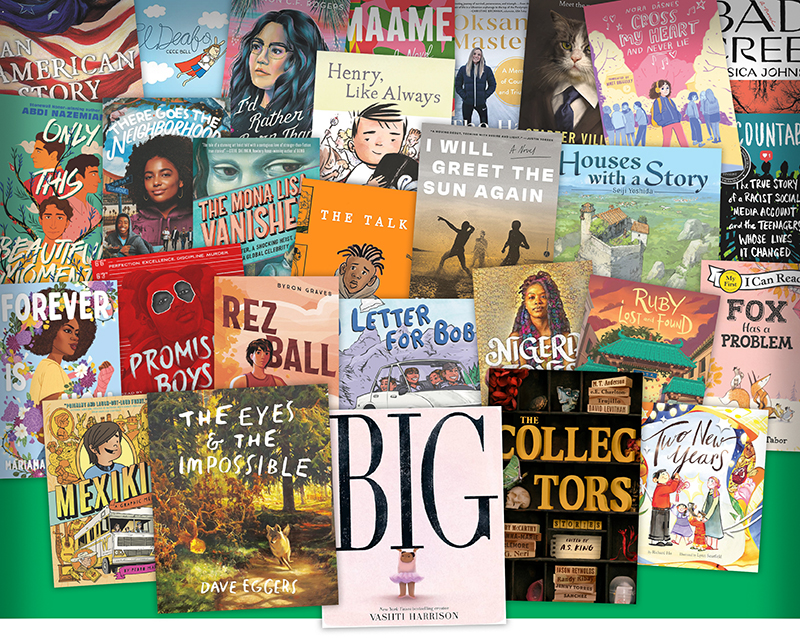Designated Reviews: Honey Bunch: Her First Little Circus (1936) by Helen Louise Thorndyke
 Time was when I could read and review a slew of older children’s books in a given year since I had no access to the newest titles on the bookshelves. Now I can see all the new titles I like, but my reading of older titles has fallen by the wayside. So it was with relief that I read this interesting take by Christine Bird, me mother-in-law, on a girls book series that, until now, I was unfamiliar with. Between 1923 and 1955 the Honey Bunch books were produced once or twice a year with varying adventures. Christine considers Honey Bunch: Her First Little Circus (1936) by Helen Louise Thorndyke and what she found when she rediscovered it again.
Time was when I could read and review a slew of older children’s books in a given year since I had no access to the newest titles on the bookshelves. Now I can see all the new titles I like, but my reading of older titles has fallen by the wayside. So it was with relief that I read this interesting take by Christine Bird, me mother-in-law, on a girls book series that, until now, I was unfamiliar with. Between 1923 and 1955 the Honey Bunch books were produced once or twice a year with varying adventures. Christine considers Honey Bunch: Her First Little Circus (1936) by Helen Louise Thorndyke and what she found when she rediscovered it again.
__________________________________
In an antique store on Christmas Eve I found an original edition of a Honey Bunch book from 1936. Now aged 62, I last read Honey Bunch when I was seven.
The first shock was the quality of the paper. The pages were so thick that I had to keep checking page numbers to be sure I was not turning several at once. The book also featured high-end illustrations. In every one of them Honey Bunch Morton looked just like Shirley Temple.
At age seven I was the second of five children in a fairly prosperous family. At the time, I always imagined that the life of luxury led by Honey Bunch was due to her being an only child. If only that were me, I too would get the back seat of the car all to myself. My mother would buy me everything I asked for. Looking pretty and having fun would be the only things that would ever be required of me. I would be richly praised for my success in these areas.
Fifty-five years later I can see what a fantasy world Honey Bunch was living in. Like Shirley Temple’s characters, she lived in the midst of the Great Depression, yet money was no object, ever. When she goes to stay with her cousin Stub on her uncle’s farm, the household includes a maid and a hired man-of-all-work, plus a crew of laborers to work in the fields. The family has its own horse and wagon, plus a car for longer journeys. The cousin has her own pony and her own dog. The girls are served three fine meals a day. Candy, cake, pies, and cookies are frequent treats. The farm family is the benefactor of the local Home for Crippled Children.
Adults are available whenever the girls need or want them. The rest of the time they are free to roam, having all kinds of interesting adventures. Honey Bunch has no hesitation about speaking to strangers she meets along the side of the road — all of them adult males. (Each time she does this, I felt exactly the way I do when Dorothy hops into the trailer with Professor Marvel in The Wizard of Oz. I want to scream "Didn’t anybody tell you not to do that?!!!")
When Honey Bunch decides she wants to stage "her first little circus," she gets 100% co-operation from the adults in putting on an elaborate show. When she decides she needs a neighbor boy from back home to be a clown in her show, his mother promptly makes him a costume and dispatches him to the farm, where he is welcomed for an indefinite stay. In the meantime, her aunt is sewing costumes for the little girls and the maid is making some more candy to be put up in fancy boxes and passed out among the crippled children at the Home. The uncle drives his horse into town to buy a big crate filled to the brim with packages of popcorn and peanuts.
The girls wear nicely ironed dresses through all their adventures. The dresses are always getting dirty. The girls simply change into new ones.
Other than getting her dresses dirty, Honey Bunch never does anything naughty, so there is never any question of her being punished. When Stub does something she has been ordered not to — feeding candy to the trained seals who are temporarily residing in her father’s barn — her only punishment is to eat dinner alone for one night as her father worries that her willful mistake will cost him a lot of money if he has to pay for the damage she has done. I can only imagine how much more severely an actual child would have been punished back in 1936.
I kept wondering "What is that Uncle Rand grows on his farm? How could a single crop per year provide the luxurious standard of living depicted in the book?"
There is no such crop, of course. The book’s job is to transport its readers out of the Great Depression and into a land of endless bounty. This it does well. The only poor person in the book is the maid’s brother, who arrives at the farm jobless, homeless, and hungry. All these problems are solved once Honey Bunch recommends him to Mr. Downey, the owner of the trained seals. Although Downey is himself relying on the kindness of the Mortons to stay afloat, he is only too happy to hire this hungry stranger, who remains curiously nameless.
Honey Bunch’s lifestyle remains enviable to me all these years later. Only now I know that the writer was telling little girls like me exactly what we wanted to hear.
Filed under: Uncategorized
About Betsy Bird
Betsy Bird is currently the Collection Development Manager of the Evanston Public Library system and a former Materials Specialist for New York Public Library. She has served on Newbery, written for Horn Book, and has done other lovely little things that she'd love to tell you about but that she's sure you'd find more interesting to hear of in person. Her opinions are her own and do not reflect those of EPL, SLJ, or any of the other acronyms you might be able to name. Follow her on Twitter: @fuseeight.
ADVERTISEMENT
ADVERTISEMENT
SLJ Blog Network
Name That LEGO Book Cover! (#53)
Exclusive: Vol. 2 of The Weirn Books Is Coming in October | News
Fighting Public School Book Bans with the Civil Rights Act
Take Five: Middle Grade Anthologies and Short Story Collections
ADVERTISEMENT







Wow–fascinating post. Thanks.
My sisters and I inherited several Honey Bunch books from an older cousin when we were kids & practically wore the covers off. I kept them for their sentimental value, but they are awfully saccharine. Thanks for the reminder!
Gosh, I loved Honey Bunch when I was a kid.
My mother had a collection of them (that, and Trixie Belden) from her childhood, that I devoured as a kid.
I wonder how I’d feel, re-reading them now. Sometimes it’s best to let these sort of things remain a hazy, pleasant memory, I think.
I’m 57 and I’ve just reread HONEY BUNCH: HER FIRST LITTLE CIRCUS for the first time in 18 years. I grew up on old books, partially because my folks couldn’t afford new books except for birthdays and Christmas and the old books could be bought very cheaply then. (Aunts and uncles who considered me a handy excuse to get old books out of the house didn’t hurt.)
Although the Honey Bunch books can be a tad repetitious (storms, lost items, Lady Clare the cat is frightened into running away, etc.), I find them charming. I like the glimpses of what the comfortably well-off could afford back then. I also like some of the entertainments the parents come up with, such as making a book garden with a blank book, library paste, and old seed catalogs and the Jack Horner pie (a pine tin filled with party favors that has a paper cover. The toys are each tied to a string the child pulls to see what s/he gets.
Did you know that you could use a wristwatch as a compass? (Obviously not a digital watch). Point the hour hand toward the sun and whatever is between the hour hand and the 7 is South.
In fairness to the ghostwriter of this entry, Mr. Downey is depending on Mr. Morton’s kindness only until the part he’s ordered to repair his truck comes in. Mr. Downey seems to have no trouble paying for his seals’ fish.
I agree about Stub’s very mild punishment. I’d expect a whipping or a spanking at the very least. The stunts that kid pulls in the books would drive me nuts!
As for Norman Clark, judging by his behavior in earlier books, his mother was probably thrilled to get him away for a day or two.
Honey Bunch is always safe talking to strange adults — in the books I’ve reread so far. It’s other children who can be a problem.
They’re pleasant reads overall.